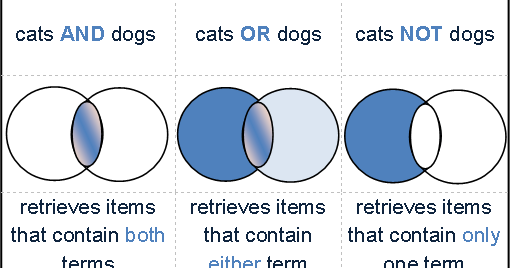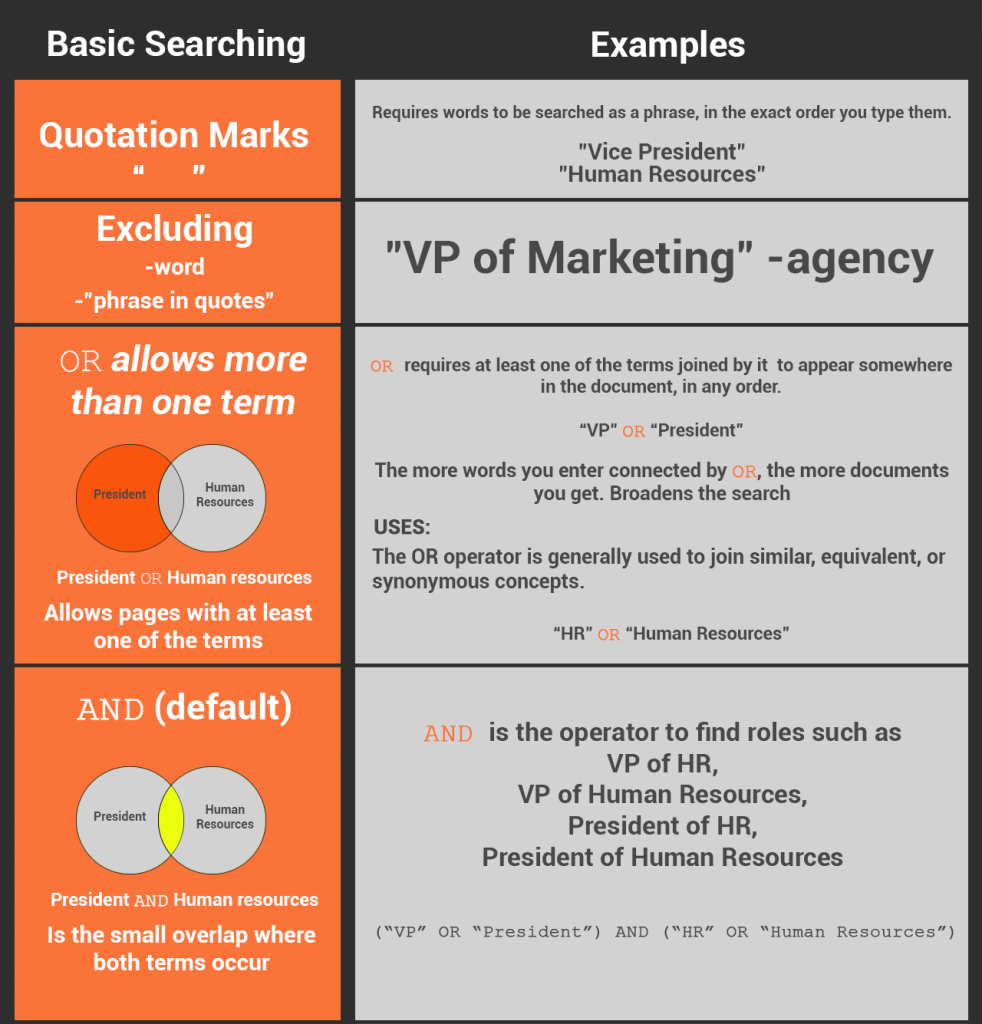
For example, a search for TI=french cooking finds the title French Provincial Cooking while TI=“french cooking” does not. To retrieve only records that contain the search words in a specific order with no words in between (that is, to do a phrase search), enter the words in double quotation marks. Other words may be present, or the words may be present in different fields of the same type. Keyword-indexed fields (for example, author, title, subject, notes) - A record must contain all the keywords entered in the field selected for search, in any order.If your library offers other databases to search, they are available to select for a Boolean search.įields that can be searched with CQL search commands fall into one of three categories: The symbol >= is the relative operator greater than or equal to. The search text for this access point is 1970. PD specifies the access point Publication Date. The search text for this access point is asimov.ĪND is the Boolean operator connecting the two conditions of this search (the author and the date). Operators (connectors) that link one part of the search with another (see Operators)Įxample: To find the works of author Asimov published in or after 1970, you type the following command:ĪU specifies the access point Author.The access points (fields) you want to search for example, author or title (see Search Access Point (Field) Codes).The search command can include the following parts: For instance, in InfoTrac, you can also use the question mark ( ?) within a word to replace a character.With a Boolean search, you can do complex, precise searches by typing CQL (Common Query Language) search commands. Some databases allow for wild cards to be embedded within a word to replace a single character. It's best to use the boolean operator "or" in these instances (cat or cats). For example:Ĭat* will also retrieve cataclysm, catacomb, catalepsy, catalog, etc. Truncating after too few letters will retrieve terms that are not relevant. Check the database help screen to find the correct truncation symbol. In general, most of the Library's databases use the asterisk ( *) however, the exclamation point ( !) is used in LexisNexis. Databases and Internet search engines use different symbols to truncate.For example,īank* will retrieve: bank or banks or banking or banker or bankruptcy, etc. Using truncation will broaden your search.Most databases allow for a symbol to be used at the end of a word to retrieve variant endings of that word.Warning: Some databases use "and not" instead of "not." Check the database help screen. Therefore, use "not" in front of a term to ensure that the search will not include that term.


Not eliminates records that contain a search term. Therefore, use "and" in between terms that are required to make the search specific.

Therefore, use "or" in between terms that have the same meaning (synonyms) or equal value to the search.Īnd retrieves records that contain all of the search terms. Or retrieves records that contain any of the search terms. It is helpful to diagram the effects of these operators: Boolean operators are also called logical operators or connectors. Jump to: Boolean | Truncation | Wild Cards Boolean Operatorsīoolean operators are words (or, and, not) used to connect search terms to expand (or) or narrow (and, not) a search within a database to locate relevant information.


 0 kommentar(er)
0 kommentar(er)
